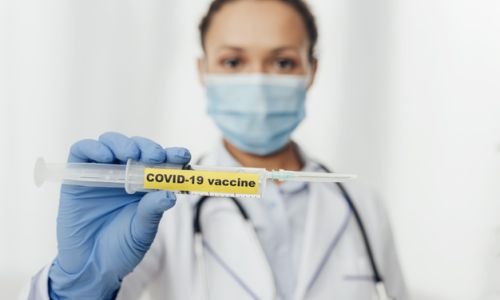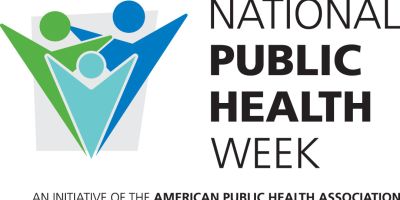Sharing Knowledge
Expertise
Resources
Making Public Health Public
Premier Network of
Public Health Communicators
Increasing the Dissemination of
Accurate Information
2025
National Conference on Health Communication Marketing and Media
Short Reel: "Voices, Vision, and Vibes – A Recap”
Thanks to all who attended and made the week so special!
2025
National Conference on Health Communication Marketing and Media
Short Reel: "Voices, Vision, and Vibes – A Recap”
Thanks to all who attended and made the week so special!
LATEST NEWS HIGHLIGHTS

Breastfeeding Causes a Surge in Immune Cells that Could Prevent Cancer
A new study offers insight into how breastfeeding may help protect against breast cancer by activating specialized immune cells that remain in breast tissue for decades. Researchers found that women who had breastfed had higher levels of CD8+ T cells—immune “guards” that may attack abnormal or cancerous cells—potentially reducing the risk of aggressive breast cancers. These findings deepen understanding of the biological mechanisms behind breastfeeding’s long-observed protective effects and may inform future prevention and treatment strategies.
While the decision to breastfeed is personal and not always possible, this research underscores the importance of continued investigation into maternal health and cancer prevention. Read more from New Scientist here.

How Doctors Used Stories, Science and Social Media to Regain Trust Around Tylenol
When misinformation spread online linking Tylenol use in pregnancy to autism, the American Academy of Family Physicians (AAFP) responded swiftly with a mix of science, empathy, and storytelling to rebuild public trust. The organization empowered its 128,000 members with plain-language, evidence-based materials and encouraged them to communicate directly with patients and media.
AAFP’s strategy combined rapid media statements, physician interviews, op-eds, and social media partnerships—including Instagram collaborations with relatable experts—to reach worried parents. By blending credible science with real voices and human stories, AAFP strengthened confidence in both the data and the doctors delivering it—an approach that resonated deeply with families. Read more from PR Daily here.

mRNA COVID Vaccines May be Helping Some Cancer Patients Fight Tumors, Researchers Say
Recent preliminary research suggests that mRNA COVID-19 vaccines may offer unexpected benefits for some cancer patients by enhancing their immune response to tumors. A study of nearly 1,000 advanced lung and skin cancer patients at MD Anderson found those who received a Pfizer or Moderna vaccine within 100 days of starting checkpoint inhibitor therapy lived substantially longer than unvaccinated patients.
Researchers propose that the mRNA mechanism “activates immune cells” and may sensitize tumors that otherwise evade immune detection. While further rigorous studies are planned, these findings highlight the potential of mRNA technology to complement cancer immunotherapy, extending beyond its original infectious disease role. Read more from PBS here.
FEATURED TOPICS
PHCC Offers New Graphics and Messaging for the 2025-26 Respiratory Illness Season
Written on

Public Health Communication Collaborative (PHCC) offers new social media graphics and messaging for public health communicators to support community preparation for the 2025–26 respiratory virus season, running November through April. Available in English and Spanish, these resources help explain respiratory virus prevention, updated vaccine eligibility, and the importance of COVID-19 and other vaccinations for both children and adults.
Step-by-step guides make it easy to encourage community members to find, schedule, and attend vaccine appointments. Early, clear communication can help reduce severe illness, increase vaccination coverage, and strengthen community resilience throughout the upcoming respiratory virus season. Find PHCC’s resources here.
New Blood Test Detects HPV-Associated Head and Neck Cancer 10 Years Early
Written on

A new federally funded study demonstrates that a liquid biopsy called HPV-DeepSeek can detect HPV-associated head and neck cancers up to 10 years before symptoms appear. HPV causes roughly 70% of these cancers in the U.S., yet no screening test previously existed. Using whole-genome sequencing and machine learning, HPV-DeepSeek identifies microscopic fragments of HPV DNA in the blood with high sensitivity and specificity, potentially enabling earlier, less intensive treatment and improved outcomes.
Researchers are now validating these findings in a larger, blinded study. The work highlights opportunities for earlier cancer detection and innovation in public health screening strategies. Read more from Harvard here.
CDC’s Flu Vaccination Recommendations Published
Written on

CDC has released its 2025–26 flu vaccination recommendations, urging everyone 6 months and older to get vaccinated, ideally by the end of October, though efforts should continue while flu viruses circulate. Updates include FDA approval of FluMist for self- or caregiver administration and expanded use of Flublok for ages 9 and up.
ACIP advises single-dose, thimerosal-free formulations for children, pregnant women, and adults. Three vaccines remain preferentially recommended for adults 65+: Fluzone High-Dose, Flublok, and Fluad. Annual flu vaccination is critical to reducing illness, hospitalization, and death, with health care providers playing a key role in patient education. Read more from CDC here.
Mississippi Declares Public Health Emergency Over Rising Infant Mortality Rate
Written on

The Mississippi Department of Health has declared a public health emergency in response to alarming infant mortality rates, with 9.7 deaths per 1,000 births in 2024—the state’s highest rate in over a decade and more than 60% above the national average. Since 2014, more than 3,500 Mississippi infants have died before their first birthday.
State health officials outlined strategies including expanding prenatal and postpartum care, addressing maternity care deserts, increasing access to community health worker programs and home visits, and promoting safe sleep education. Public health leaders stress that improving maternal health and protecting access to care are essential to reducing infant deaths. Read more from CNN here.
Latest Blog Posts
Podcast
"Public Health Speaks"
A bi-monthly podcast series about public health issues to educate, inform and assist our members, partners and affiliate organizations in understanding and overcoming urgent communication challenges
From Our Partners
CDC Online Newsroom
- CDC Immunization Schedule Adopts Individual-Based Decision-Making for COVID-19 and Standalone Vaccination for Chickenpox in Toddlers
- Statement from Laura Chanchien Parajón, MD, MPH, Director (Acting), CDC's National Center for Chronic Disease Prevention and Health Promotion, on the passing of Suzy Ellis, Tips From Former Smokers® participant
- Listeria Outbreak to include more Prepared Foods
- CDC Reports Latest National Data on Syphilis in Newborns and Sexually Transmitted Infections (STIs)
- CDC Report Finds Sharp Rise in Dangerous Drug-Resistant Bacteria
- Statement from Laura Chanchien Parajón, MD, MPH, Director (Acting), CDC's National Center for Chronic Disease Prevention and Health Promotion, on the passing of Michael Fletcher, Tips From Former Smokers® participant
- Certain Metabolic Meals home delivery foods reported in ongoing Salmonella outbreak investigation
- Nearly 100 people sick in Salmonella outbreak linked to recalled eggs
CDC Latest COVID-19 Science Update
CDC FluView Weekly Summary
CDC Morbidity and Mortality Weekly Report
- Recommendations and Reports: Tularemia Antimicrobial Treatment and Prophylaxis: CDC Recommendations for Naturally Acquired Infections and Bioterrorism Response - United States, 2025
- Interim Effectiveness Estimates of 2025 Southern Hemisphere Influenza Vaccines in Preventing Influenza-Associated Outpatient and Hospitalized Illness - Eight Southern Hemisphere Countries, March-September 2025
- Influenza-Associated Pediatric Deaths - United States, 2024-25 Influenza Season
- Pediatric Influenza-Associated Encephalopathy and Acute Necrotizing Encephalopathy - United States, 2024-25 Influenza Season
- Erratum: Vol. 74, No. RR-1
GET INVOLVED! NPHIC SOCIAL MEDIA
NPHIC YouTube Channel
- Teen Workers: Real Jobs, Real Risks (Mallory’s Story)
- OneLab VR Autoclave Safety Scenario
- Introduction of Laboratory Director University (LDU) Promo Video
- U.S. Firefighters: Join the NIOSH NFR and Fight Cancer Together
- Tell Us About Your Fire Service | Join the NIOSH NFR for Cancer
- Answer the Call: Join the National Firefighter Registry for Cancer
- The Path of Yeast Resistance: Drug-resistant Candida on the Rise - Sept 18
- When a tick bite causes a red meat allergy



















